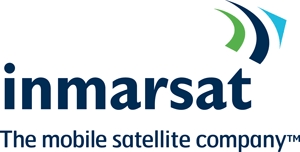


(Posted on 30/06/20)
Inmarsat, the world leader in global, mobile satellite communications, has published a new report focusing on the way technology can benefit crew safety, health and wellbeing at sea, at a moment when COVID-19 has exposed the welfare of seafarers to global scrutiny.
"Welfare 2.0: How can the next generation of technology enable better crew safety, health and wellbeing at sea?” report, has been prepared by consultancy Thetius. It follows an earlier ‘Trade 2.0’ report focusing on the impact new technologies and start-ups can have on efficiency in vessel management.
“When we first discussed this report last year with the author and the welfare organisations and charities we work closely with, none of us could have foreseen the impact that COVID-19 would have on the world, shipping, seafarers and their families,” says Ronald Spithout, President, Inmarsat Maritime. “However, even then, we all felt that safety and crew welfare was being left behind in the technology stakes and much more needed to be done to look at how it could help improve the lives of seafarers.”
The new report explores the underlying factors affecting crew safety, welfare and learning, and highlights those companies working to address the pain points. It shows that, while the maritime industry prides itself that seafarer safety and welfare is its highest priority, lack of investment in the digitalised technologies benefiting worker welfare, particularly compared to investment in other sectors, undermines the narrative.
“We are at a point in time when lack of shore leave, unplanned contract extensions, fear of job loss and separation from family are weighing heavily on seafarers worldwide”, said Spithout. “Technology cannot provide a “silver bullet”. However, its role is vital in embedding policies and practices to enhance safety and wellbeing on board. Data-based tools test what does and doesn’t work for the ‘human element’ and track changes over time.”
“The new report also represents the first step in Welfare 2.0,” Spithout adds. “Inmarsat is already working towards the launch of a ‘Crew Welfare Open Innovation Challenge’ with Shell Shipping and Maritime and Thetius – which is a corporate startup collaboration programme aiming to promote and nurture digital crew wellbeing solutions.”
In a global workplace wellness market worth $48 billion in 2018, report author and Thetius founder and Managing Director, Nick Chubb says that investments in crew welfare start-ups pale in comparison with vessel management technology. While difficult to break-out, the $3.8 billion spent on ship management software each year, Chubb identifies that startups focusing on issues like wellbeing, welfare and safety have on average attracted only $2.25 million in investment since 2010. This compares to $9.6 million for ship performance technology start-ups.
The report strongly recommends the value that data models capturing, storing and analysing factors contributing to seafarer health, welfare, and safety can have in shipping. The author cites one key insight as an alarming disparity between cardiovascular-related deaths at sea and available information, support and tools that minimise risks and deal with emergencies. The report shows how fleet managers could look to invest in various digital seafarer monitoring and awareness tools specific to cardiovascular health.
COVID-19 may itself have made maritime stakeholders more amenable to telemedicine services. Over 200 ships have already signed up to a new COVID-19 video consultation service from Vikand, facilitated by AI start-up FrontM and Inmarsat Fleet Connect bandwidth. Elsewhere, start-up Motion Ventures has repurposed a financial compliance tool to support secure healthcare monitoring for crews at home, on board or in transit.
The report also explores possible consequences of the coronavirus for seafarer training, with the closure of education facilities encouraging faster uptake of remote learning. Wallem, Anglo-Eastern and Star Bulk have deployed virtual training from OMS-VR to learn about dangerous activities, for example. UK-based Seabot XR is developing ship-specific VR and augmented reality training and familiarisation, accessible to seafarers via their smartphones.
Columbia Group anticipates a period of strong expansion as an increasing number of international shipowners... Read more
Norse?Ship Management has expanded its use of Smart Ship Hub’s high frequency sensor data and... Read more
As the maritime industry gears up to welcome the IMO’s STCW bullying and harassment training amendments... Read more
NORDEN has acquired the cargo activities of Taylor Maritime in Southern Africa (previously operated... Read more
Philippos Ioulianou, Managing Director of EmissionLink, has warned the IMO’s decision to delay... Read more
VIKAND has highlighted the need for cultural change in the maritime sector as reports of bullying, harassment... Read more
The maritime industry is experiencing a period of significant transformation, driven by rapidly evolving... Read more
NorthStandard has advised Members of a 5% increase in P&I premiums for the marine insurance year... Read more
Anemoi Marine Technologies, the UK-based leading designer of Rotor Sails for wind-assisted ship propulsion... Read more
Helm Operations has announced that nine electronic record books within Helm CONNECT Logbook have been... Read more